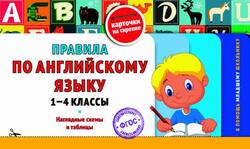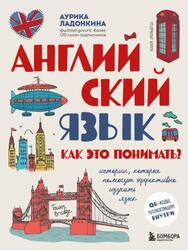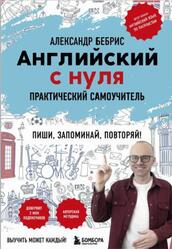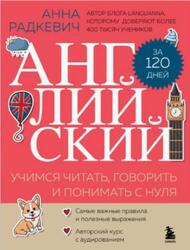Focus on grammar 3, Workbook, Fuchs M., 2000.
Marjorie Fuchs has taught ESL at New York City Technical College and LaGuardia Community College of the City University of New York and EFL at the Sprach Studio Lingua Nova in Munich, Germany. She holds a Masters Degree in Applied English Linguistics and a certificate in TESOL from the University of Wisconsin-Madison. She has authored or coauthored many widely used ESL textbooks, notably On Your Way: Building Basic Skills in English, Crossroads, Top Twenty ESL Word Games, Around the World: Pictures for Practice, Families: Ten Card Games for Language Learners, Focus on Grammar: A High-Intermediate Course for Reference and Practice, and the Workbooks to the Longman Dictionary of American English, the Longman Photo Dictionary, The Oxford Picture Dictionary, and the Vistas series.
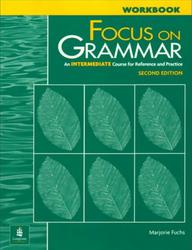
Adjectives: Comparatives and Equatives.
Research suggests that there is a connection between the crime rate in U.S. cities and certain other factors. Read the information. Rewrite the information, using two comparatives.
1. When cities are large, they usually have high crime rates.
The larger the сity, the higher the crime rate.
2. When cities are small, they usually have low crime rates.
3. When cities have warm climates, the police are usually busy.
4. When the weather is cold, there is usually a great number of robberies.
5. When the police force is large, the city is usually violent.
6. When it’s late in the day, the number of car thefts is usually high.
7. When the unemployment rate is high, the crime rate is usually also high.
8. When the population is mobile (people move from place to place), the city is usually dangerous.
CONTENTS.
Part I Present, Past, and Future: Review and Expansion.
Unit 1 Present Progressive and Simple Present Tense.
Unit 2 Imperative.
Unit 3 Simple Past Tense.
Unit 4 Used to.
Unit 5 Past Progressive and Simple Past Tense.
Unit 6 Future.
Unit 7 Future Time Clauses.
Unit 8 Wh- Questions: Subject and Predicate.
Part II Pronouns and Phrasal Verbs.
Unit 9 Reflexive and Reciprocal Pronouns.
Unit 10 Phrasal Verbs.
Part III Modals and Related Verbs and Expressions.
Unit 11 Ability: Can, Could, Be able to.
Unit 12 Permission: May, Could, Can, Do you mind if...?.
Unit 13 Requests: Will, Would, Could, Can, Would you mind...?.
Unit 14 Advice: Should, Ought to, Had better.
Unit 15 Suggestions: Let’s, Could, Why don’t...?, Why not...?, How about...?.
Part IV Present Perfect.
Unit 16 Present Perfect: Since and For.
Unit 17 Present Perfect: Already and Yet.
Unit 18 Present Perfect: Indefinite Past.
Unit 19 Present Perfect and Simple Past Tense.
Unit 20 Present Perfect Progressive.
Unit 21 Present Perfect and Present Perfect Progressive.
Part V Adjectives and Adverbs: Review and Expansion.
Unit 22 Adjectives and Adverbs.
Unit 23 Adjectives: Comparatives and Equatives.
Unit 24 Adjectives: Superlatives.
Unit 25 Adverbs: Equatives, Comparatives, Superlatives.
Part VI Gerunds and Infinitives.
Unit 26 Gerunds: Subject and Object.
Unit 27 Gerunds after Prepositions.
Unit 28 Infinitives after Certain Verbs.
Unit 29 Infinitives of Purpose.
Unit 30 Infinitives with Too and Enough.
Unit 31 Gerunds and Infinitives.
Part VII More Modals and Related Verbs and Expressions.
Unit 32 Preferences \ Prefer, Would prefer, Would rather.
Unit 33 Necessity: Have (got) to, Don’t have to, Must, Must not, Can't.
Unit 34 Expectations: Be supposed to.
Unit 35 Future Possibility: May, Might, Could.
Unit 36 Assumptions: Must, Have (got) to, May, Might, Could, Can’t.
Part VIII Nouns and Articles.
Unit 37 Nouns and Quantifiers.
Unit 38 Articles: Indefinite and Definite.
Answer Key AK1.
Tests.
Answer Key for Tests.
Купить .
Теги: учебник по английскому языку :: английский язык :: Fuchs
Смотрите также учебники, книги и учебные материалы:
 World wonders 1, Test book, Heath J. — Фрагмент из книги. Camping is good because it isn t expensive. Summer is the best time of the year for … Книги по английскому языку
World wonders 1, Test book, Heath J. — Фрагмент из книги. Camping is good because it isn t expensive. Summer is the best time of the year for … Книги по английскому языку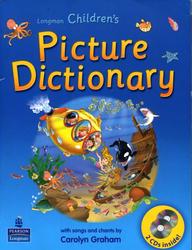 Childrens Picture Dictionary, Graham C., 2003 — The Longman Children s Picture Dictionary presents 800 words and phrases within 50 beautifully illustrated and photographed Topics. The dictionary … Книги по английскому языку
Childrens Picture Dictionary, Graham C., 2003 — The Longman Children s Picture Dictionary presents 800 words and phrases within 50 beautifully illustrated and photographed Topics. The dictionary … Книги по английскому языку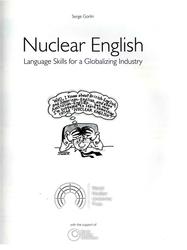 Nuclear English, Language Skills for a Globalizi Industry, Gorlin S., 2005 — Nuclear English is a flexible course that can be used according to individual needs. Because the units in the book … Книги по английскому языку
Nuclear English, Language Skills for a Globalizi Industry, Gorlin S., 2005 — Nuclear English is a flexible course that can be used according to individual needs. Because the units in the book … Книги по английскому языку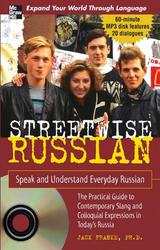 Streetwise Russian, Speak and Understand Everyday Russian, Franke J., 2010 — The principal aim of Streetwise Russian is to provide a glimpse into Russian slang at the dawn of the 21st … Книги по английскому языку
Streetwise Russian, Speak and Understand Everyday Russian, Franke J., 2010 — The principal aim of Streetwise Russian is to provide a glimpse into Russian slang at the dawn of the 21st … Книги по английскому языку
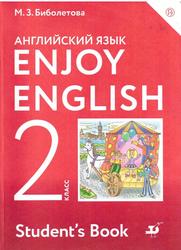 Английский язык, 2 класс, Enjoy english, Students book, Биболетова М.З., Денисенко О.А., Трубанева Н.Н., 2019 — Новое издание учебных пособий для начальной, основной и средней школы соответствует ФГОС, полностью сохраняет традиции, структуру и методические особенности курса … Книги по английскому языку
Английский язык, 2 класс, Enjoy english, Students book, Биболетова М.З., Денисенко О.А., Трубанева Н.Н., 2019 — Новое издание учебных пособий для начальной, основной и средней школы соответствует ФГОС, полностью сохраняет традиции, структуру и методические особенности курса … Книги по английскому языку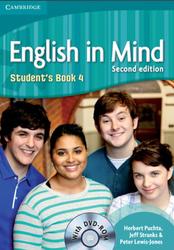 English in mind 4, Students book, Puchta H., Stranks J., Lewis-Jones P. — Фрагмент из книги. I understand exactly how you feel - I left school at 16 to work in a supermarket. … Книги по английскому языку
English in mind 4, Students book, Puchta H., Stranks J., Lewis-Jones P. — Фрагмент из книги. I understand exactly how you feel - I left school at 16 to work in a supermarket. … Книги по английскому языку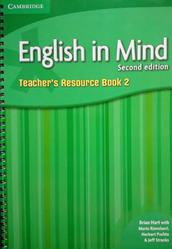 English in mind 2, Teachers resource book, Hart B., Rinvolucri M. — This section is designed to serve as a review, giving students the opportunity to revise and practise language they already … Книги по английскому языку
English in mind 2, Teachers resource book, Hart B., Rinvolucri M. — This section is designed to serve as a review, giving students the opportunity to revise and practise language they already … Книги по английскому языку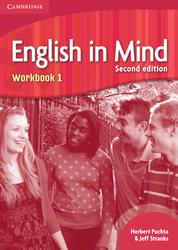 English in mind 1, Workbook, Puchta H., Stranks J. — Фрагмент из книги. You have to match each person with two activities. Which activities will go together, do you think? … Книги по английскому языку
English in mind 1, Workbook, Puchta H., Stranks J. — Фрагмент из книги. You have to match each person with two activities. Which activities will go together, do you think? … Книги по английскому языку

